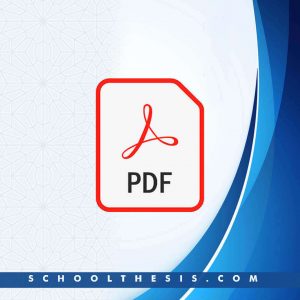
Tax Reforms and Revenue Generation in Nigeria a Longitudinal Analysis
Quick Navigation for Final Year Undergraduates, Masters (Thesis), and Ph.D. Dissertation Students Who Need Our Services on Their Research Works
| Find More Project Topics | FIND HERE |
| Hire Us for Thesis Works | HIRE NOW |
| Hire Us for Project Works | HIRE NOW |
| Hire Us for Seminar Works | HIRE NOW |
| Hire Us for Assignments | HIRE NOW |
| Hire Us for Proposals | HIRE NOW |
| Contact Us | HERE NOW |
INTRODUCTION
The tax system in Nigeria is made up of the tax policy, the tax laws and the tax administration. All of these are expected to work together in order to achieve the economic goal of the nation. According to the Presidential Committee on National tax policy (2008), the central objective of the Nigerian tax system is to contribute to the well being of all Nigerians directly through improved policy formulation and indirectly though appropriate utilization of tax revenue generated for the benefit of the people. In generating revenue to achieve this goal, the tax system is expected to minimize distortion in the economy. Other expectations of the Nigerian tax system according to the Presidential Committee on National tax policy (2008) include;
- Encourage economic growth and development.
- Generate stable revenue or resources needed by government to accomplish loadable projects and or investment for the benefit of the people
- Provide economic stabilization.
- To pursue fairness and distributive equity
- Correction of market failure and imperfection.
In an attempt to fulfill the above expectation, the national tax policy is expected to be in compliance with the principle of taxation, the lubricant to effective tax system. The Nigerian tax system has been flawed by what is termed multiplicity of tax and collecting entities at the three tiers of government levels – Federal, State and Local government (Ahunwan, 2009).
Disclaimer
This research material is intended for academic use only and should be used as a guide in constructing your research project and seminar presentation. You should never duplicate the content word for word (verbatim), as SCHOOLTHESIS.COM will not be held liable for anyone who does.
The purpose of publishing this material is to alleviate the stress of hopping from one school library to the next in search of research materials. This service is lawful because all educational institutions allow students to read past projects, papers, books, and articles while working on their own.
SCHOOL THESIS is merely giving this information as a research reference. Use the document as a reference or structure for your own research paper. This paper’s content should be able to assist you in coming up with new ideas and thoughts for your own study
Tax Reforms and Revenue Generation in Nigeria: a Longitudinal Analysis research paper, should only be used as a guide.